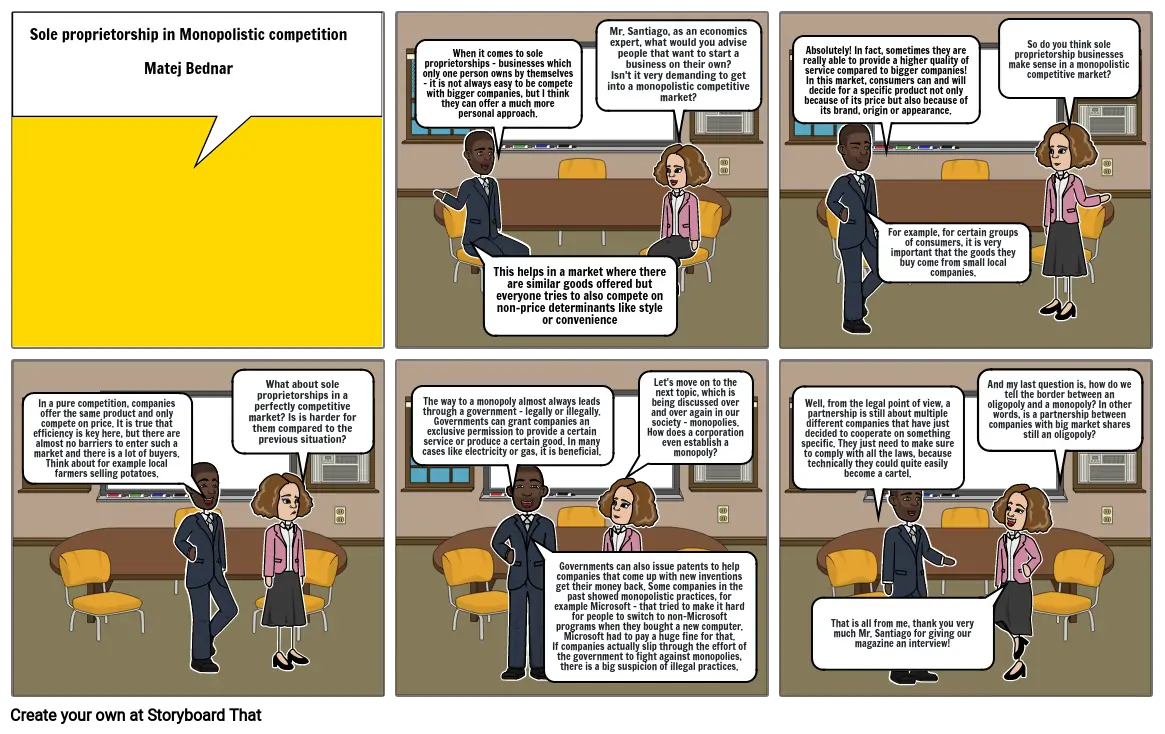Economics Project 2

Montāžas Teksta
- Sole proprietorship in Monopolistic competitionMatej Bednar
- When it comes to sole proprietorships - businesses which only one person owns by themselves - it is not always easy to be compete with bigger companies, but I think they can offer a much more personal approach.
- This helps in a market where there are similar goods offered but everyone tries to also compete on non-price determinants like style or convenience
- Mr. Santiago, as an economics expert, what would you advise people that want to start a business on their own?Isn't it very demanding to get into a monopolistic competitive market?
- Absolutely! In fact, sometimes they are really able to provide a higher quality of service compared to bigger companies! In this market, consumers can and will decide for a specific product not only because of its price but also because of its brand, origin or appearance.
- For example, for certain groups of consumers, it is very important that the goods they buy come from small local companies.
- So do you think sole proprietorship businesses make sense in a monopolistic competitive market?
- In a pure competition, companies offer the same product and only compete on price. It is true that efficiency is key here, but there are almost no barriers to enter such a market and there is a lot of buyers. Think about for example local farmers selling potatoes.
- What about sole proprietorships in a perfectly competitive market? Is is harder for them compared to the previous situation?
- The way to a monopoly almost always leads through a government - legally or illegally.Governments can grant companies an exclusive permission to provide a certain service or produce a certain good. In many cases like electricity or gas, it is beneficial.
- Governments can also issue patents to help companies that come up with new inventions get their money back. Some companies in the past showed monopolistic practices, for example Microsoft - that tried to make it hard for people to switch to non-Microsoft programs when they bought a new computer. Microsoft had to pay a huge fine for that.If companies actually slip through the effort of the government to fight against monopolies, there is a big suspicion of illegal practices.
- Let's move on to the next topic, which is being discussed over and over again in our society - monopolies. How does a corporation even establish a monopoly?
- Well, from the legal point of view, a partnership is still about multiple different companies that have just decided to cooperate on something specific. They just need to make sure to comply with all the laws, because technically they could quite easily become a cartel.
- That is all from me, thank you very much Mr. Santiago for giving our magazine an interview!
- And my last question is, how do we tell the border between an oligopoly and a monopoly? In other words, is a partnership between companies with big market shares still an oligopoly?
Izveidoti vairāk nekā 30 miljoni stāstu shēmu

